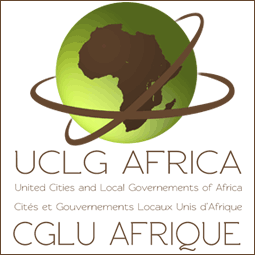Nigeria: Nigeria: Issues On FG's Planned Introduction of National Carrier, Acquisition of 30 Aircraft
2012/12/20
The Minister of Aviation Princess Stella Uduah recently told Daily Trust in an exclusive interview that, as among of its four strategies to grow aviation in Nigeria, the federal government would before the end of the year, complete work on a National Carrier and as well acquire at least 30 new aircraft to support local airlines. This, she explained, is a new mode of intervention since the previous N300 billion the federal government gave the airlines some two years ago failed to yield the desired result.
On the National Carrier she explained that "a national carrier that represents our pride as a country and will be managed by professionals. We are going to have core investors that will be the promoters of this. We will have it transparently and the criteria of who becomes the core investor will be advertised. We will have a consultant that would bring out the criteria and whoever wins, takes it. The rest would go to the open market for subscription."
But some experts have raised concerns on these policies. While some welcome the ideas, some said it is not good enough.
Mohammed Tukur, the Executive Secretary, Airline Operators of Nigeria (AON) speaking to our correspondent on the minister's plan to acquire 30 new aircrafts for the aviation industry said "the Minister of Aviation has gotten it right. As far as airline operators are concerned, we won't condemn the minister on this. It is a welcome development. The minister and the government have done a lot for the aviation industry and it should be commended. Recall how the first bailout from the CBN was used. If the government now says rather than give the airline money, we will set up a company that would acquire the aircrafts or government will acquire directly and give to local airlines who need them, it would be great."
"Amount the airlines need do is put down their AOC and get the aircrafts. There is a lot of benefits, it will create opportunities for the airlines to create jobs, expand operations and grow their business. But if you give them the money, they may take it and do some other business other than aviation. This model is in the right direction and the best way to improve our aviation industry," he said.
He nevertheless noted that the government should allow those who have the resources to invest in aviation even if they don't want the aircrafts the government wants to buy.
"We know what the minister is going through from some operators who are bent on blackmailing her without letting her succeed but we support her because she is trying. Nevertheless, she needs to fast track the process. As well we need brand new aircrafts. So whatever model they want to adopt whether it is by creating a leasing company or adopting some other means of giving the aircrafts to the airlines, its fine by me provided it's transparent, done by professionals and satisfies Nigerians.
"We welcome extra aircrafts and extra airlines to drive down the cost of airfare. It is too expensive at the moment as air tickets to Abuja from Lagos costs sometimes over N35,000. It's too much," he noted.
But on the national career, Tukur noted that "for me, I am not in support of a national carrier but it is my personal opinion. What is the national career for when we killed Nigerian Airways? We put a law and liquidated Nigerian Airways and sold it at peanuts. Now the government still says they want to form another national carrier, would they go back to the National Assembly to create another law? or would you call IRS, AERO or Arik to say come and become a national carrier? or would you bring a new company and make it a national carrier, what happens to Air Nigeria?" he wondered.
According to captain Dele Ore, the President, Aviation Round Table who as well spoke on "we have always said it but people don't want to appreciate the fact that a national carrier isn't necessary. The idea of a national career is archaic. Government doesn't run business efficiently.
"For government to have a hand in putting a national carrier together, government is looking for trouble. If you set up a national carrier it means you are setting up a competition against the existing ones. If you are an operator that has invested money, how would you feel? They should be careful even though we cannot stop them, we wish them good luck."
But the managing Director, Belujane Konzult, an aviation consultant, Mr. Chris Aligbe noted that a national carrier would as well be relevant to the Fly Nigeria Act currently being considered in the National Assembly.
"The national carrier that the minister is talking about is commendable and should be supported because the model and philosophy diverse markedly from the rested Nigerian airways. In her model, the government will not be involved in the management of the national career but the private sector would" he said.
He explained that those who liquidated the Nigerian Airways did it out of selfish interest and out of error, adding that they were informed not to do it but because personal interest overrides national interest, they went ahead and killed Nigerian Airways.
"We gave them instances that those that liquidated their national carrier never survived it. Countries like Uganda and Tanzania did it and failed. We told them amount these but their selfish interest overwhelmed them, they collapsed the Nigerian airways left behind huge pension liabilities they have refused to pay,"he noted.
According to him, the act of selling Nigerian Airways has snowballed into the several failings in the aviation industry because there are no standards to benchmark, adding that the national carrier, like a Nigerian Airways would have provided the needed benchmarking standards in the industry.
- Comments
- Related Articles
-
Minister of Petroluem resources, Diezani Alison-Madueke
2012/12/31 Minister of Petroluem resources, Diezani Alison-Madueke has said that with the current national consumption rate at 110,000 metric tonnes (MT) per annum of Liquified Petroleum Gas (LPG), Nigeria is ranked part the lowest consumers of LPG in Africa. Speaking at the opening of the LPG Strategic Workshop and Conference in Abuja, the minister said growing the LPG market in Nigeria is a critical component of the country’s Gas Master plan. -
MCC Selects Countries Eligible for New Programs
2012/12/30 At its quarterly conference December 19, the U.S. Millennium Challenge Corporation (MCC) board of directors selected Liberia, Niger, Sierra Leone, Morocco and Tanzania as eligible to develop proposals for new compacts, and Guatemala as eligible for a Threshold Program. "This year's selection decisions are a testament to the 'MCC Effect,' the ability of MCC to provide incentives for nations to adopt policy reforms and strengthen institutions in order to become eligible for an MCC compact," said Daniel W. Yohannes, MCC's chief executive officer. -
Infrastructure evolution set to test tower space
2012/12/29 We have come to expect technology advances that result in consumer electronics equipment getting smaller, additional powerful and in most cases cheaper. This process can be seen in the hands and pockets of most consumers where that smartphone or tablet device houses additional processing power and came at a cheaper price than desktop computers of a decade ago. -
Airtel Nigeria Completes LTE Trial
2012/12/27 Mobile service provider Airtel Nigeria has taken a giant stride in its quest to pioneer innovation and lead a new phase of telecoms revolution in the country as it announces the successful completion of the Long Term Evolution (LTE) trial in Lagos, the commercial nerve centre of Nigeria. LTE, widely accepted as the true 4G, is a standard for wireless communication of high-speed data for mobile phones and data terminals. It is based on advanced network technologies with a central focus of increasing the capacity and speed using a different radio interface together with enhanced core network. -
Efforts to improve critical routes on federal roads
2012/12/27 A whopping N500 billion would be required annually for the next years to fix Nigerian ailing roads and bring them to sync with road infrastructure development in other thriving nations in the world. This was disclosed recently by the Minister of Works, Mr. Mike Onolememen. Onolememen who is an Architect, told the Home of Representatives' Committee on Works that the average annual budget of about N100 billion for road development is grossly inadequate for the country's 35,000 kilometre of Federal roads.
-
- Trending Articles
-
- GABON: Final day of the New York Forum Africa in Libreville 2012-06-25
- TURKEY: Turkey Real Estate 2012-07-24
- AFRICA: Ethiopia, Zambia, Cape Verde: Clarification on the management of television and radio rights
- BRAZIL: Brazilian Gradiente launches IPHON
- MEXICO: Another stab at radical change in telecommunications
- TANZANIA: Tanzania to restrict size of land investors can lease



.gif?1356023993)
.gif2_.gif?1356029657)




